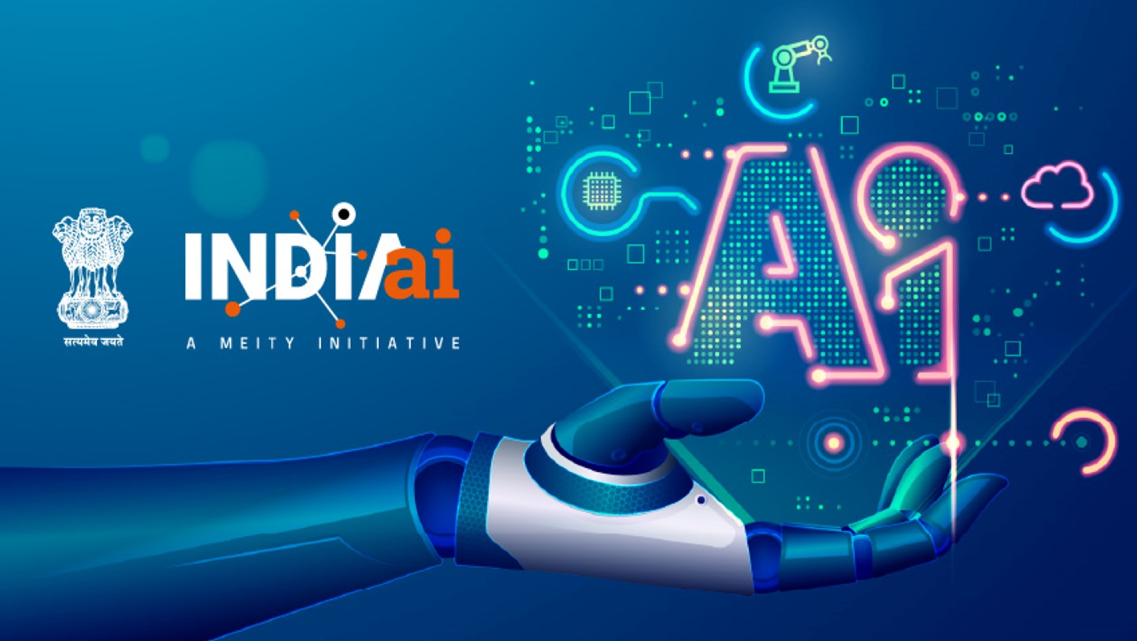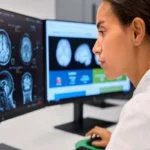As of mid-2025, the narrative of Artificial Intelligence in India’s healthcare is one of accelerating innovation, strategic adaptation, and a determined push for equitable access. Far from being a mere technological marvel, AI is transforming from a niche solution to a fundamental component of the nation’s health strategy, especially as it grapples with the dual challenges of a vast and diverse population and a persistent shortage of medical infrastructure and personnel.
The Heartbeat of Progress: AI’s Expanding Role
India’s unique demographic and geographical landscape makes it a fertile ground for AI’s impactful applications. We’re witnessing AI not just augment existing healthcare systems, but actively create new pathways to care:
- Empowering the Frontline: In rural India, where specialist doctors are scarce, AI is stepping in as a powerful ally for community health workers. Initiatives like those by CureBay are deploying AI-powered eClinics staffed by “Swasthya Mitras” (health friends). These centers leverage AI for screening, diagnosis, and patient navigation, connecting remote villagers to certified doctors via video consultations, often with IoT-enabled diagnostic tools. Similarly, Remidio’s handheld retinal imaging devices, powered by offline AI, enable frontline workers to screen for conditions like diabetic retinopathy and glaucoma directly in villages, addressing a critical need for preventative eye care.
- Precision Diagnostics, Democratized: AI is making high-accuracy diagnostics more widely available. Beyond well-known applications like AI in radiology for detecting subtle abnormalities in X-rays or CT scans, India is seeing specialized deployments. The MadhuNetr DR-AI project in Rajasthan, for instance, uses AI to screen for diabetic retinopathy, a leading cause of blindness, directly in remote communities. This brings specialist-level diagnostic capabilities to areas that might otherwise lack them entirely.
- The Rise of Generative AI in Clinics: The administrative burden on Indian doctors is immense. Generative AI is starting to alleviate this by automating clinical documentation, medical coding, and even summarizing complex patient histories. This allows doctors to reclaim valuable time, shifting their focus from paperwork to direct patient interaction and enhancing the overall efficiency of clinics and hospitals. Early adopters report significant time savings and improved data accuracy.
- Synergizing Ancient Wisdom with Modern Tech: A significant development in 2025 is the global recognition of India’s pioneering efforts in integrating AI with traditional medicine, as highlighted by the WHO’s recent roadmap on AI in traditional medicine, stemming from India’s proposal. Projects like Ayurgenomics are using AI to blend Ayurvedic principles with modern genomics, leading to personalized health recommendations based on ancient wisdom and cutting-edge data analysis. This unique blend holds immense promise for holistic and preventive healthcare.
- Predicting and Preventing Public Health Threats: The Ministry of Health and Family Welfare (MoHFW) is actively utilizing AI for robust public health surveillance. AI-driven tools like Media Disease Surveillance (MDS) scan vast digital news sources for early alerts on infectious disease outbreaks, enabling rapid and targeted responses. Furthermore, AI solutions are being deployed to enhance the Tuberculosis elimination program, identifying missed cases and predicting adverse outcomes, demonstrating AI’s power in managing prevalent diseases.
The Unseen Hurdles: Navigating AI’s Ethical Landscape in India
While the advancements are transformative, India’s AI healthcare journey is also navigating a complex ethical terrain:
- Ensuring Data Privacy and Security: The Digital Personal Data Protection (DPDP) Act, 2023, provides a legal framework, but the sheer volume and sensitivity of health data processed by AI demand continuous vigilance. Concerns around data breaches and the re-identification of anonymized data remain critical, pushing for robust cybersecurity and privacy-enhancing technologies.
- Combating Algorithmic Bias: India’s vast cultural, linguistic, and genetic diversity means that AI models must be trained on truly representative datasets to avoid perpetuating or amplifying existing health disparities. The Indian Council of Medical Research (ICMR) ethical guidelines are crucial in emphasizing fairness, patient safety, and transparency to mitigate such biases.
- Building Trust and Transparency: The “black box” nature of some AI algorithms can be a barrier to adoption. Healthcare professionals and patients need to understand how AI arrives at its recommendations. Efforts are underway to develop more explainable AI models and to ensure clear communication about AI’s role, limitations, and the right to human oversight, particularly when patients consult AI symptom checkers.
- Infrastructure and Digital Literacy Disparities: While progress is rapid, the digital divide persists. Reliable internet connectivity and digital literacy are foundational for the equitable adoption of AI-powered healthcare, especially in deep rural pockets. This necessitates continued investment in infrastructure and digital education programs.
- Cost and Scalability: While AI promises long-term cost savings, the initial investment in developing, implementing, and maintaining AI systems can be substantial for a resource-constrained healthcare sector. Finding cost-effective and scalable solutions is key to widespread adoption.
The Road Ahead: A Collaborative Ecosystem
India’s approach to AI in healthcare is characterized by a dynamic ecosystem of government initiatives, a thriving startup scene, and a growing emphasis on ethical deployment. Moving forward, we can expect:
- Increased focus on AI-driven preventive care, leveraging wearable data and predictive analytics for early intervention on a mass scale.
- Broader integration of AI into telemedicine platforms, making specialist consultations more accessible across geographical barriers.
- Continued growth in AI’s role in drug discovery, with India potentially becoming a hub for AI-accelerated pharmaceutical innovation.
- Development of more culturally nuanced and multilingual AI solutions, catering to India’s linguistic diversity.
India’s unique challenges are proving to be fertile ground for innovative AI solutions that are not only transforming its own healthcare landscape but also offering valuable lessons for the global community. By leveraging AI thoughtfully and ethically, India is laying the foundation for a healthier, more inclusive future for all its citizens, byte by byte.


